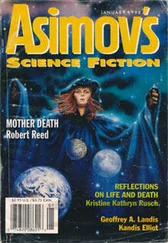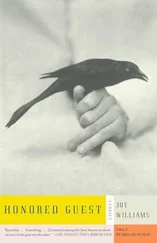Joy Williams - Taking Care
Здесь есть возможность читать онлайн «Joy Williams - Taking Care» весь текст электронной книги совершенно бесплатно (целиком полную версию без сокращений). В некоторых случаях можно слушать аудио, скачать через торрент в формате fb2 и присутствует краткое содержание. Год выпуска: 2010, Издательство: Vintage, Жанр: Современная проза, на английском языке. Описание произведения, (предисловие) а так же отзывы посетителей доступны на портале библиотеки ЛибКат.
- Название:Taking Care
- Автор:
- Издательство:Vintage
- Жанр:
- Год:2010
- ISBN:нет данных
- Рейтинг книги:5 / 5. Голосов: 1
-
Избранное:Добавить в избранное
- Отзывы:
-
Ваша оценка:
- 100
- 1
- 2
- 3
- 4
- 5
Taking Care: краткое содержание, описание и аннотация
Предлагаем к чтению аннотацию, описание, краткое содержание или предисловие (зависит от того, что написал сам автор книги «Taking Care»). Если вы не нашли необходимую информацию о книге — напишите в комментариях, мы постараемся отыскать её.
Taking Care — читать онлайн бесплатно полную книгу (весь текст) целиком
Ниже представлен текст книги, разбитый по страницам. Система сохранения места последней прочитанной страницы, позволяет с удобством читать онлайн бесплатно книгу «Taking Care», без необходимости каждый раз заново искать на чём Вы остановились. Поставьте закладку, и сможете в любой момент перейти на страницу, на которой закончили чтение.
Интервал:
Закладка:
It is Sunday. Jane pours milk into a pancake mix.
Something gummy is stuck in David’s hair. Jane gets a pair of scissors and cuts it out.
Jackson says, “David, I want you to stop crying so much and I want you to stop pretending to bake in Mommy’s cupcake tins.” Jackson is angry, but then he laughs. After a moment, David laughs too.
That afternoon, a woman and a little girl come to the house about the dog.
“I told you on the phone, I’d give you some fresh eggs for him.” the woman says, thrusting a child’s sand bucket at Jane. “Even if you decide not to give the dog to us, the eggs, of course, are still yours.” She pauses at Jane’s hesitation. “Adams,” the woman says. “We’re here for the ad.”
Jackson waves her to a chair and says, “Mrs. Adams, we seek no personal aggrandizement from our pet. Our only desire is that he be given a good home. A great many people have contacted us and now we must make a difficult decision. Where will he inspire the most contentment and where will he find canine fulfillment?”
Jane brings the dog into the room.
“There he is, Dorothy!” Mrs. Adams exclaims to the little girl. “Go over and pet him or something.”
“It’s a nice dog,” Dorothy says. “I like him fine.”
“She needs a dog,” Mrs. Adams says. “Coming over here, she said, ‘Mother, we could bring him home today in the back of the car. I could play with him tonight.’ Oh, she sure would like to have this dog. She lost her dog last week. A tragedy. Kicked to death by one of the horses. Must have broken every bone in his fluffy little body.”
“What a pity!” Jackson exclaims.
“And then there was the accident,” Mrs. Adams goes on. “Show them your arm, Dorothy. Why, I tell you, it almost came right off. Didn’t it, darling?”
The girl rolls up the sleeve of her shirt. Her arm is a mess, complexly rearranged, a yellow matted wrinkle of scar tissue.
“Actually,” Jackson says, “I’m afraid my wife has promised the dog to someone else.”
After they leave, Jackson says, “These farm people have the souls of animals themselves.”
The dog walks slowly back to the kitchen, swinging its high foolish hips. David wanders back to the breakfast table and picks up something, some piece of food. He chews it for a moment and then spits it out. He kneels down and spits it into the hot-air register.
“David,” Jane says. She looks at his face. It is calm and round, a child’s face.
It is evening. On television, a man dressed as a chef, holding six pies, falls down a flight of stairs. The incident is teaching numbers.
SIX, the screen screams.
“Six,” David says.
Jane and Jackson are drinking whiskey and apple juice. Jane is wondering what they did for David’s last birthday, when he was five. Did they have a little party?
“What did we do on your last birthday, David?” Jane asks.
“We gave him pudding and tea,” Jackson says.
“That’s not true,” Jane says, worried. She looks at David’s face.
SIX TOCKING CLOCKS, the television sings.
“Six,” David says.
Jane’s drink is gone. “May I have another drink?” she asks politely, and then gets up to make it for herself. She knocks the ice cubes out of the tray and smashes them up with a wooden spoon. On the side of the icebox, held in place by magnets, is a fragment from a poem, torn from a book. It says, The dead must fall silent when one sits down to a meal . She wonders why she put it there. Perhaps it was to help her diet.
Jane returns to the couch and David sits beside her. He says, “You say ‘no’ and I say ‘yes.’”
“No,” Jane says.
“Yes,” David yells, delighted.
“No.”
“Yes.”
“No.”
“Yes.”
“Yes.”
David stops, confused. Then he giggles. They play this game all the time. Jane is willing to play it with him. It is easy enough to play. Jackson and Jane send David to a fine kindergarten and are always buying him chalk and crayons. Nevertheless, Jane feels unsure with David. It is hard to know how to act when one is with the child, alone.
The dog sits by a dented aluminum dish in the bright kitchen. Jackson is opening a can of dog food.
“Jesus,” he says, “what a sad, stupid dog.”
The dog eats its food stolidly, gagging a little. The fur beneath its tail hangs in dirty beards.
“Jesus,” Jackson says.
Jane goes to the cupboard, wobbling slightly. “I’m going to kill that dog,” she says. “I’m sick of this.” She puts down her drink and takes a can of Drāno out of the cupboard. She takes a pound of hamburger which is thawing in a bowl and rubs off the soft pieces onto a plate. She pours Drāno over it and mixes it in.
“It is my dog,” Jane says, “and I’m going to get rid of him for you.”
David starts to cry.
“Why don’t you have another drink?” Jackson says to Jane. “You’re so vivacious when you drink.”
David is sobbing. His hands flap in the air. Jackson picks him up. “Stop it,” he says. David wraps his legs around his father’s chest and pees all over him. Their clothing turns dark as though, together, they’d been shot. “Goddamn it,” Jackson shouts. He throws his arms out. He stops holding the child but his son clings to him, then drops to the floor.
Jane grabs Jackson’s shoulder. She whispers in his ear, something so crude, in a tone so unfamiliar, that it can only belong to all the time before them. Jackson does not react to it. He says nothing. He unbuttons his shirt. He takes it off and throws it in the sink. Jane has thrown the dog food there. The shirt floats down to it from his open fist.
Jane kneels and kisses her soiled son. David does not look at her. It is as though, however, he is dreaming of looking at her.
The Wedding

E LIZABETH always wanted to read fables to her little girl but the child only wanted to hear the story about the little bird who thought a steam shovel was its mother. They would often argue about this. Elizabeth was sick of the story. She particularly disliked the part where the baby bird said, “You are not my mother, you are a snort, I want to get out of here!” Elizabeth was thirty and the child was five. At night, at the child’s bedtime, Sam would often hear them complaining bitterly to one another. He would preheat the broiler for dinner and freshen his drink and go out and sit on the picnic table. In a little while, the screen door would slam and Elizabeth would come out, shaking her head. The child had frustrated her again. The child would not go to sleep. She was upstairs, wandering around, making “cotton candy” in her bone-china bunny mug. “Cotton candy” was Kleenex sogged in water. Sometimes Elizabeth would tell Sam the story that she had prepared for the child. The people in Elizabeth’s fables were always looking for truth or happiness and they were always being given mirrors or lumps of coal. Elizabeth’s stories were inhabited by wolves and cart horses and solipsists.
“Please relax,” Sam would say.
At eleven o’clock every night, Sam would take a double Scotch on the rocks up to his bedroom.
“Sam,” the child called, “have some of my cotton candy. It’s delicious.”
Elizabeth’s child reminded Sam of Hester’s little Pearl even though he knew that her father, far from being the “Prince of the Air,” was a tax accountant. Elizabeth spoke about him often. He had not shared the 1973 refund with her even though they had filed jointly and half of the year’s income had been hers. Apparently the marriage had broken up because she often served hamburgers with baked potatoes instead of French fries. Over the years, astonishment had turned to disapproval and then to true annoyance. The tax accountant told Elizabeth that she didn’t know how to do anything right. Elizabeth, in turn, told her accountant that he was always ejaculating prematurely.
Читать дальшеИнтервал:
Закладка:
Похожие книги на «Taking Care»
Представляем Вашему вниманию похожие книги на «Taking Care» списком для выбора. Мы отобрали схожую по названию и смыслу литературу в надежде предоставить читателям больше вариантов отыскать новые, интересные, ещё непрочитанные произведения.
Обсуждение, отзывы о книге «Taking Care» и просто собственные мнения читателей. Оставьте ваши комментарии, напишите, что Вы думаете о произведении, его смысле или главных героях. Укажите что конкретно понравилось, а что нет, и почему Вы так считаете.












